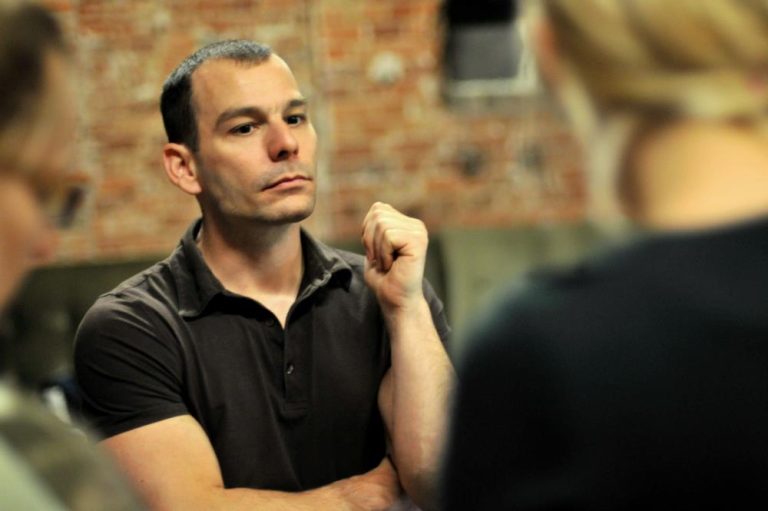Jonathan Prager (F)
14/05/2016
Interprets Bernard Parmegiani

Born in Lyon in 1972, Jonathan Prager is a composer, teacher and one of the few performers trained in the spatialization of acousmatic works which he brings to life with virtuosity and remarkable musical skill in concert. Originally a sound engineer, he was a pupil of Denis Dufour and Jean-Marc Duchenne at the National Conservatory of Lyon, then of Bernard Fort at ENM in Villeurbanne.
He has been a member of the Futura [Crest / Drôme] festival team since its creation in 1993. Since 1995, principal owner of the Acousmonium Motus, he has had the time to develop a deep and unique approach to interpreting electronic works in concert. He is also the principal interpreter of Acmonmonium Mare [Bari, Italy].
Associate professor since 1998 at the “composition and sound design” Department of the National Conservatory of Perpignan [class led by Denis Dufour], he has hosted numerous workshops, masterclasses, and interpretation courses in Perpignan, Lyon, Ile-de-France, Italy, China, Japan and regularly teaches Futura’s summer courses in Crest and Paris.
After contributing to the modernization of the current version of the great Acustmonium Motus [Acustmaxi] he also dedicated himself to the design and development of a second set of smaller room speakers [acousmini, whose driving is computer-assisted]. He has performed on more than 600 works – including about fifty creations – and “owns” a vast repertoire, which includes the classics Pierre Schaeffer, Pierre Henry, Bernard Parmegiani, Luc Ferrari, Jacques Lejeune, Michel Chion, Denis Dufour, Francis Dhomont, Dieter Kaufmann and pioneering works by younger composers. He has performed with almost all existing audio devices, such as those of the INA-GRM / Paris, of the GMVL / Lyon, of Music and Research / Brussels, Mare / Milan, acusmonium Sator, Bari, Cidma … Through his intense concert activity, demonstrates that a lively, sensitive and embodied transmission of the international acoustic heritage is possible and defends the need for it to be discovered by the public under the fingers of qualified interpreters
His participation as acousmatic interpreter within an instrumental ensemble is fully justified in his desire to rehabilitate the remarkable repertoire of mixed works [written for instruments and simultaneous audio support] coming from the great aesthetic and technological researches of the 60s up to our days, such as: Cantate pour elle, by Ivo Malec, Kontakte by Karheinz Stockhausen, Je voulais parler des oiseaux by Denis Dufour, but also the works of Luc Ferrari, François-Bernard Mâche … and finally offer them that spatial dimension they fully deserve.
